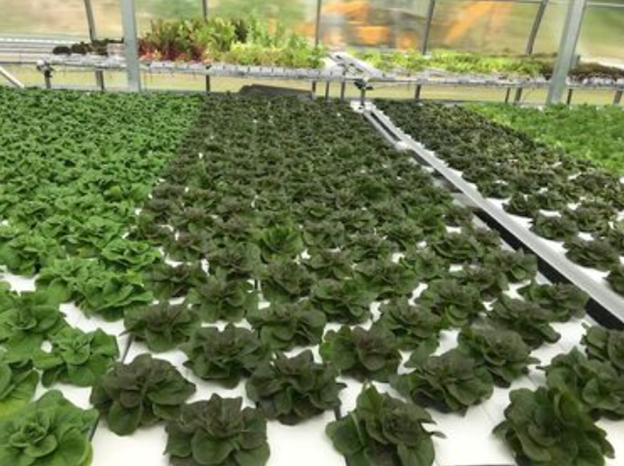Top-Level Takeaways
-
VSECU invests directly into cooperatives both inside and outside of Vermont without running against the 12.25% member business lending cap. Leaders there say other credit unions can do the same.
-
The strategy helps the credit union increase the impact of where it invests its members’ deposits.
America’s 5,000 food co-ops have more than 3 million members nationwide and ring up nearly $2 billion in sales annually. Food co-ops have played a vital role as essential businesses during the COVID-19 pandemic, although many were hit hard by the upheavals of 2020.
The Springfield Food Co-op‘ a community staple in Springfield, VT, for more than 25 years’ adjusted to COVID protocols while in the midst of expanding into a new downtown location on Main Street that offered more shelf space, community space, and “a pandemic dining essential” outdoor seating.
The move cost more than $700,000. The co-op’s 2,300 members, a local community development group, and the private sector funded the venture, but one key investment of $125,000 came from Vermont State Employees Credit Union($955.9M, Montpelier, VT).
If it sounds unusual for a credit union to be part owner of a co-op, that’s because it is. Vermont statute allows state-chartered credit unions to invest directly into other credit unions and cooperatives both inside and outside of Vermont. Similar legislation exists in seven other states including Arkansas, Illinois, Kentucky, Montana, Nevada, New Jersey, and New Mexico, although few credit unions know about it.
“We’d like to see Congress follow suit by broadening the range of credit unions that are legally permitted to make such investments.”
After Matt Cropp, a VSECU member and executive director of the Vermont Employee Ownership Center, brought the statute to the credit union’s attention, VSECU created Co-Op Capital, a program aimed at supporting the development of cooperatives with long-term capital investment.
Since the program’s launch in 2016, VESCU has invested in a worker-owned cooperative herbal clinic, a startup commercial hydroponic greenhouse, and, most recently, Springfield Food Co-op. So far, VSECU has invested $148,000 through Co-Op Capital.
“VSECU is constantly looking for ways to increase the impact of where we invest our members’ deposits” says Simeon Chapin, community impact officer at VSECU. “We ask ‘How does this create social, environmental, and financial prosperity?'”
A Sound Investment
Vermont’s statue enables credit unions to invest equity of up to 10% of their shares, deposits, and surplus into cooperatives, without counting against the 12.25% member business lending cap. VSECU’s business loan committee evaluates potential investments and analyzes their potential social impact. Investments generally take the form of preferred stock, non-voting shares that can pay a dividend.
Chapin says cooperatives are sound investments that support the local market. According to data from the World Council of Credit Unions, 90% of cooperatives are still operating after five years in business, compared with 3-5% of traditional businesses. Multiple other studies have shown, on average, 48% of every purchase at a local business goes back into the local economy compared to 14% at national chains.
“Strong, stable businesses and organizations that build wealth for members and keep funds working in our community are exactly what credit unions were founded to be and founded to support,” Chapin says.
Expanding The Program
To expand the program inside and outside of Vermont, VSECU established relationships with organizations and lenders such as the Cooperative Fund of New England, Vermont Employee Ownership Center, the Local Enterprise Assistance Fund, and other local cooperative associations. Chapin says the goal is to support the cooperative sector in multiple ways, including using traditional products and services as well as direct investments. For example, when Oak Street Co-op in Burlington, VT, wanted to buy a building at 88-90 Oak St. and lease space to small, startup businesses, VSECU came through with a mortgage. The co-op then raised $200,000 from shares sold to 70 community members and leased the space to two businesses, Poppy Caf & Market and Caf Mamajuana, which opened in November.
Another direct investment through Co-op Capital went to Wellspring Harvest, a hydroponic greenhouse located in the Indian Orchard neighborhood of Springfield, MA. Wellspring Harvest provides employment to low-income residents and year-round local produce to supermarkets, colleges, hospitals, and families in Springfield and western Massachusetts.


VSECU invested $20,000 in preferred shares to help build the greenhouse. That money became part of $450,000 in equity that enabled Wellspring Harvest to leverage another $755,000 in loans.
Patient capital like the VSECU investment is critical to the success of new cooperative businesses and makes the larger package of financing possible,’ says Fred Rose, co-director of Wellspring Cooperative Corporation.
Wellspring Cooperative has continued to operate through the pandemic, even after losing one-third of its sales when colleges and hospital cafeterias closed. It manages the Go Fresh Mobile Market emergency food delivery program that supports 600 low-income families and raised nearly $20,000 to deliver fresh lettuce to the Western Mass Food Bank.
“Long-term investment has enabled us to weather these challenging economic times and diversify our revenue sources” Rose says.
According to Chapin at VSECU supporting cooperatives is one of many ways the credit union invests in its local community.
For example, it offers home weatherization loans that help members save money on heating costs and reduce carbon emissions linked to climate change. The credit union also offers a credit card that provides a lower interest rate on local purchases as well as a line of credit for small businesses that hire and shop locally.
“We think about the impact of a loan or investment beyond the primary purpose” Chapin says.
Looking To The Future
Leo Sammallahti, marketing manager for Coop Exchange, says co-op advocates are working to identify credit unions in the other seven states to follow VSECU’s lead.
“There is also talk of lobbying other state legislatures” says Sammallahti, whose group created a mobile app that allows anyone in the world to invest in co-ops. “Eventually, we’d like to see Congress follow suit by broadening the range of credit unions that are legally permitted to make such investments.”
Chapin is unaware of other credit unions making similar investments but says there is “enormous potential” for credit unions across the country. Unfortunately, most cooperatives are hampered by laws at the federal level that limit the ways they can find and acquire capital.
“Sometimes, they are boxed in because of the specific sector” Chapin says. “It also is legally challenging to lend to or invest in a group of people rather than a single owner.”
Citing the work of Nathan Schneider, an author and University of Colorado professor, Chapin notes that public financing could be used to create more “democratic capital” or “capital that supports democratic ownership structures” which could clear the way for more credit union capital.
“Expansion needs to come from two directions’ the credit union side and the cooperative side” Chapin says. “Credit unions need more awareness of the opportunity. Better support and understanding of the cooperative business model would bring in more entrepreneurs, innovation, and opportunities for investment.”